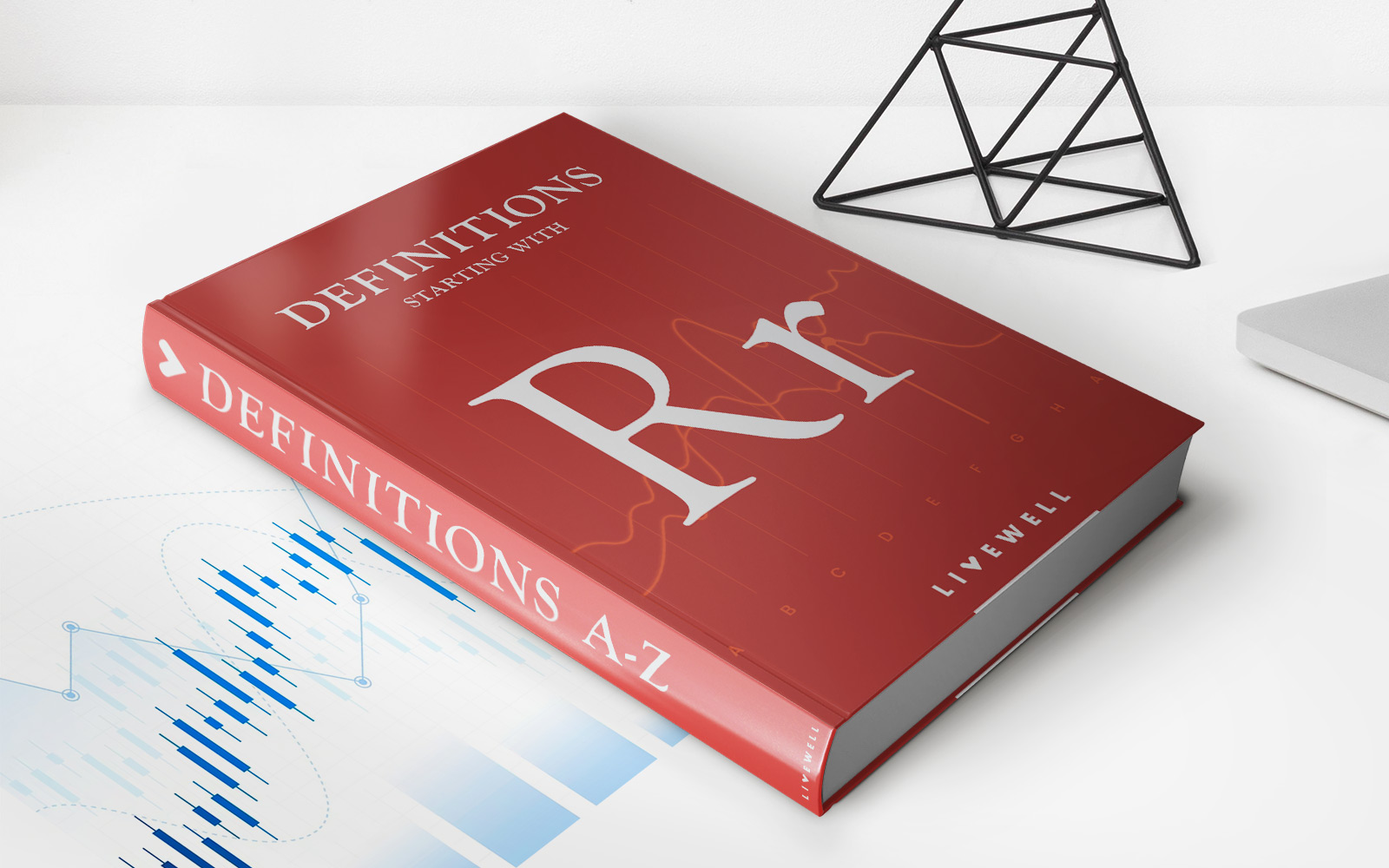

Finance
How Do Pensions Affect Social Security?
Published: January 22, 2024
Learn how pensions impact Social Security benefits and understand the financial implications. Get expert advice on managing your finances for a secure retirement.
(Many of the links in this article redirect to a specific reviewed product. Your purchase of these products through affiliate links helps to generate commission for LiveWell, at no extra cost. Learn more)
Table of Contents
Introduction
Pensions and Social Security are integral components of retirement planning, each playing a significant role in ensuring financial stability during the post-career years. Understanding the interplay between pensions and Social Security is crucial for individuals navigating the complexities of retirement benefits. This article delves into the intricate relationship between pensions and Social Security, shedding light on how pensions can impact Social Security benefits and taxes. By comprehending these dynamics, individuals can make informed decisions to optimize their retirement income.
Retirement planning is a multifaceted endeavor, and pensions serve as a cornerstone for many individuals. These employer-sponsored retirement plans offer a reliable source of income during retirement, typically based on the individual's salary and years of service. On the other hand, Social Security provides a safety net, offering benefits based on an individual's work history and contributions to the Social Security system.
As individuals approach retirement, they often wonder how their pensions will influence their Social Security benefits. This concern is valid, as the interaction between pensions and Social Security can have implications for the amount of retirement income individuals receive and the taxes they may incur. Therefore, gaining a comprehensive understanding of this relationship is essential for making well-informed decisions regarding retirement planning.
Throughout this article, we will explore the mechanics of pensions, their impact on Social Security benefits and taxes, and strategies for maximizing retirement income. By unraveling the complexities of pensions and Social Security, individuals can navigate the retirement landscape with confidence, ensuring that they make the most of these vital financial resources.
Understanding Pensions
Pensions, also known as defined benefit plans, are retirement benefits provided by an employer to employees. These plans are designed to provide a steady stream of income to employees after they retire. The amount of pension benefits is typically determined by factors such as the employee’s salary history and years of service with the company. Unlike 401(k) plans, where the retirement income is based on individual contributions and investment returns, pensions guarantee a specific amount of income based on a predetermined formula.
Employers fund pensions, and the accrued benefits are usually based on a combination of the employee’s salary and years of service. The longer an employee works for a company and the higher their salary, the greater their pension benefits are likely to be. Pensions provide a level of financial security in retirement, as they offer a predictable income stream that continues throughout the retiree’s lifetime.
It’s important to note that the landscape of pensions has evolved in recent years, with many companies transitioning away from traditional defined benefit plans to defined contribution plans, such as 401(k)s. However, pensions still play a crucial role in retirement planning for numerous individuals, particularly those in certain industries and government sectors.
Understanding the mechanics of pensions is essential for individuals as they plan for retirement. By grasping the fundamentals of how pensions work and the benefits they provide, individuals can make informed decisions about their overall retirement strategy. Moreover, comprehending the role of pensions in the broader context of retirement benefits, including Social Security, empowers individuals to optimize their financial well-being during their post-career years.
Impact of Pensions on Social Security Benefits
The interaction between pensions and Social Security can have a notable impact on the amount of Social Security benefits an individual receives. This impact is particularly significant for individuals who have contributed to both a pension plan and the Social Security system during their working years. The two primary factors that influence the impact of pensions on Social Security benefits are the Windfall Elimination Provision (WEP) and the Government Pension Offset (GPO).
The Windfall Elimination Provision primarily affects individuals who receive a pension from work not covered by Social Security, such as certain government employees. Under the WEP, the formula used to calculate Social Security benefits is modified, resulting in a reduction of the primary insurance amount. This adjustment aims to ensure that individuals who receive pensions from non-covered employment do not receive disproportionately higher Social Security benefits than those who have contributed to Social Security throughout their careers.
On the other hand, the Government Pension Offset impacts spousal or survivor benefits. Individuals who receive a pension from a job not covered by Social Security may experience a reduction in their spousal or survivor benefits from Social Security. This reduction is based on the amount of the pension from non-covered employment, and it is intended to prevent the “double-dipping” of benefits by individuals who receive both a pension and spousal or survivor benefits.
It’s important for individuals with pensions to understand these provisions and their potential impact on Social Security benefits. By being aware of these regulations, individuals can better anticipate the adjustments to their Social Security benefits and plan their retirement income accordingly.
Furthermore, the impact of pensions on Social Security benefits underscores the complexity of retirement planning and the need for a comprehensive approach to optimizing retirement income. By considering the interplay between pensions and Social Security, individuals can make informed decisions to maximize their overall retirement benefits.
How Pensions Affect Social Security Taxes
When it comes to the taxation of Social Security benefits, the presence of a pension can influence the tax implications for retirees. The taxation of Social Security benefits is determined by the individual’s combined income, which includes their adjusted gross income, nontaxable interest, and half of their Social Security benefits. For individuals with pensions, the amount of their pension income can impact the taxation of their Social Security benefits.
If an individual has a pension in addition to receiving Social Security benefits, the combined income from these sources can push a portion of their Social Security benefits into the taxable income bracket. This means that a higher percentage of their Social Security benefits may be subject to federal income tax. The specific threshold at which Social Security benefits become taxable depends on the individual’s filing status and combined income level.
It’s important for retirees with pensions to understand the potential tax implications of their combined income from pensions and Social Security benefits. By being aware of how their pension income affects the taxation of their Social Security benefits, individuals can make strategic decisions to manage their tax liability and optimize their retirement income.
Moreover, the taxation of Social Security benefits underscores the need for proactive tax planning in retirement. Retirees with pensions should consider consulting with financial advisors or tax professionals to explore tax-efficient strategies and mitigate the impact of taxes on their retirement income. By strategically managing their pension income and Social Security benefits, retirees can work towards maximizing their after-tax retirement income and preserving their financial well-being in retirement.
Strategies for Maximizing Social Security Benefits with Pensions
Optimizing Social Security benefits alongside pension income involves strategic planning to enhance overall retirement income. Individuals with pensions can employ several strategies to maximize their Social Security benefits while leveraging their pension assets effectively.
One approach is to consider delaying the commencement of Social Security benefits. By deferring the receipt of Social Security beyond the full retirement age, individuals can increase their monthly benefit amounts. This strategy can be particularly beneficial for retirees with pensions, as it allows them to rely on their pension income during the deferral period, thereby maximizing the eventual Social Security benefits they receive.
Another strategy involves coordinating the timing of pension distributions with the receipt of Social Security benefits. By strategically structuring the withdrawal of pension funds, individuals can minimize their taxable income in certain years, potentially reducing the portion of their Social Security benefits subject to taxation. This coordinated approach can optimize the overall tax efficiency of retirement income, allowing retirees to retain more of their earnings.
Furthermore, individuals with pensions should explore spousal benefit options within the Social Security system. Spousal benefits can provide additional financial support for married couples, and understanding the interplay between pensions and spousal benefits is crucial for maximizing retirement income. By strategically coordinating pension and Social Security benefits with those of a spouse, individuals can optimize their combined retirement income and enhance financial security in retirement.
It’s essential for individuals with pensions to engage in comprehensive retirement planning that considers the intricate relationship between pensions and Social Security. Seeking guidance from financial advisors or retirement planning experts can provide valuable insights into tailored strategies for optimizing retirement benefits. By leveraging these strategies, individuals can make the most of their pension assets while maximizing their Social Security benefits, ultimately securing a more robust financial foundation for their retirement years.
Conclusion
Understanding the impact of pensions on Social Security benefits is paramount for individuals navigating the complexities of retirement planning. Pensions serve as a vital source of retirement income, offering financial security based on an individual’s salary history and years of service with their employer. Meanwhile, Social Security provides a safety net, delivering benefits derived from an individual’s contributions to the Social Security system.
The interplay between pensions and Social Security is multifaceted, with implications for the amount of retirement income individuals receive and the taxes they may incur. The Windfall Elimination Provision and the Government Pension Offset are critical factors that can influence the calculation of Social Security benefits for individuals with pensions. Moreover, the presence of a pension can impact the taxation of Social Security benefits, necessitating strategic planning to manage tax liabilities effectively.
Maximizing Social Security benefits alongside pension income requires thoughtful strategies that encompass delaying the commencement of Social Security benefits, coordinating pension distributions with Social Security payments, and exploring spousal benefit options. By leveraging these strategies and engaging in comprehensive retirement planning, individuals can optimize their retirement income and enhance their financial security during their post-career years.
In conclusion, the intricate relationship between pensions and Social Security underscores the importance of informed decision-making and proactive planning. By comprehending the dynamics of pensions and their impact on Social Security benefits and taxes, individuals can navigate the retirement landscape with confidence. Through strategic coordination of pension assets and Social Security benefits, retirees can maximize their retirement income, ultimately securing a more robust financial foundation for their retirement years.














